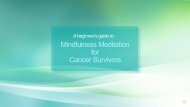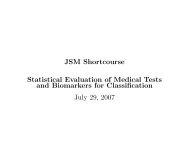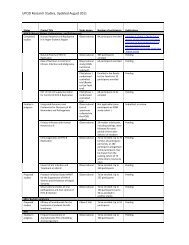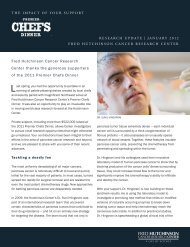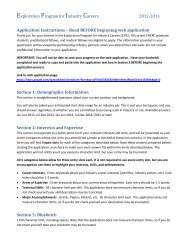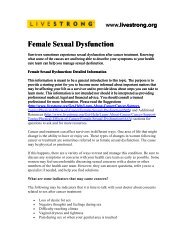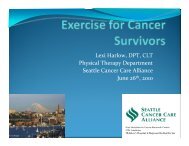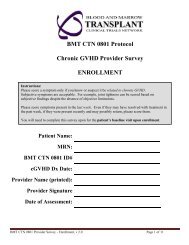Summer Undergraduate Research Program - Fred Hutchinson ...
Summer Undergraduate Research Program - Fred Hutchinson ...
Summer Undergraduate Research Program - Fred Hutchinson ...
Create successful ePaper yourself
Turn your PDF publications into a flip-book with our unique Google optimized e-Paper software.
Audience Analysis<br />
Another crucial element to consider when preparing any writing sample is the intended audience . When<br />
preparing a research/goal statement, the author should consider the following:<br />
• Who is the audience(s) for this writing product?<br />
• What are their goals, concerns, priorities, needs?<br />
• What is the setting, context, level of formality?<br />
• What style and tone are appropriate for this audience and setting?<br />
• What impression do I want to create?<br />
• What are the key points that are essential for the reviewers to take away?<br />
• In what order should those points unfold in this writing product?<br />
For some, the hardest part of the writing process is just getting started . Here are some strategies to help you<br />
overcome the anxiety associated with writing .<br />
The Writing Process<br />
• Be sure to spend a considerable amount of time in the “thinking phase .”<br />
• Assemble all of your supporting materials .<br />
• Consider how you will incorporate those materials into your writing sample .<br />
• Envision your product .<br />
• Start - somewhere .<br />
• Consider this: your introduction is the first impression your argument will make on your reader. You<br />
might want to write your introduction AFTER you’ve written the rest of your paper. Many writers find<br />
that they have a better grip on their subject once they’ve done their first draft.<br />
• Get your thoughts down on paper and then work on editing/revising!<br />
Strategies for Overcoming the Fear of Writing<br />
• 90% of writing is in the mental preparation before you ever set pen to page .<br />
• Talk about the assignment with someone . This is part of the “mental preparation” stage .<br />
• Make an outline or list of keywords and concepts to help organize your thinking .<br />
• Think about your writing process, i .e . time of day, location, circumstances in which you write the best<br />
(do you require absolute quiet or prefer a bustling environment, music, etc .?) and then utilize those to<br />
your best advantage .<br />
• Everything is easier once you start - so just start . Somewhere . It doesn’t have to be the beginning . “Go<br />
with the flow” during the initial period of frustration and uncertainty of what to write.<br />
• Nothing is cast in stone, so don’t worry about how it “sounds” at first.<br />
• If you’re having a hard time documenting what you want to say, try explaining it verbally to someone .<br />
Listen to yourself explain what it is you’re trying to say out loud – this will often help you pinpoint<br />
what you’re trying to articulate on paper .<br />
• If you do all of these things, and still are stuck, it may mean you haven’t spent enough time<br />
envisioning and planning your writing product. You can’t rush this phase!<br />
14



